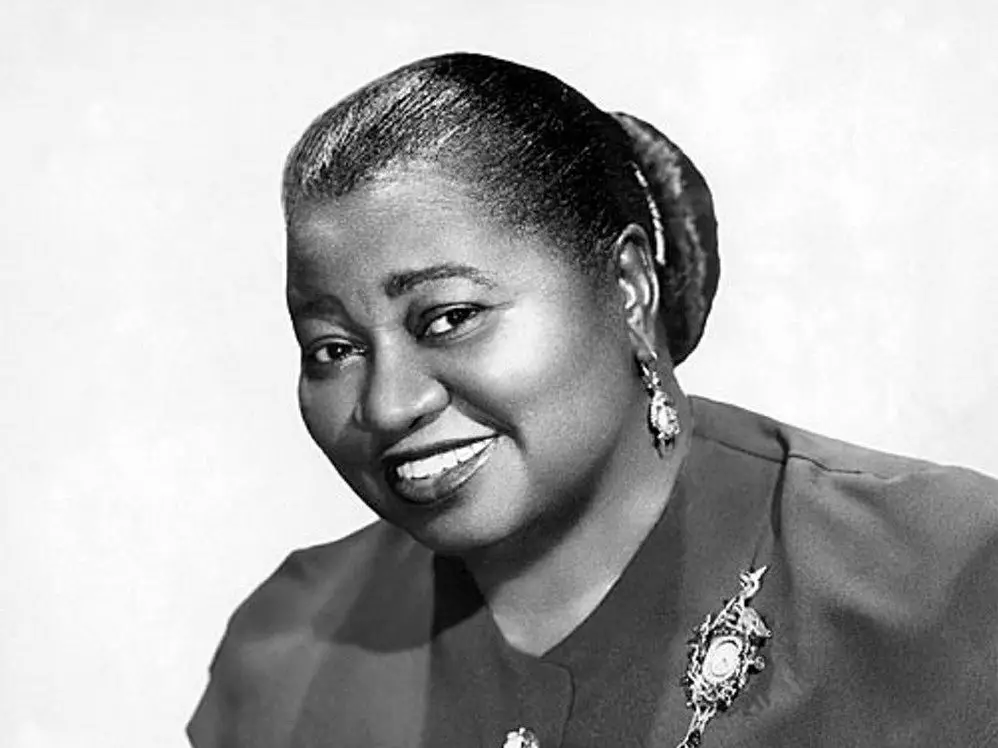“Today is one of the happiest moments of my life. And I want to thank each one of you who had a part in selecting me for one of the awards. For your kindness, it has made me very, very humble and I shall always hold it as a beacon for anything that I may be able to do in the future. I sincerely hope I shall always be a credit to my race and to the motion picture industry.”
Those are the words of the late Hattie McDaniel 80 years ago.
In 1940, she delivered them in a beautiful red carpet floral gown having just become the first Black person to receive an Academy Award. Watching her accept that famed golden statue has always been an amazing moment; not just for McDaniel, I imagine, but for all those who would follow in her path. It was an iconic night in cinema, yet it also epitomized the industry’s racism.
The ceremony was held at the Cocoanut Grove nightclub at the Ambassador Hotel, a segregated “no-Blacks” establishment in Los Angeles. The producer of the film that won McDaniel her Oscar, David O. Selznick, had to pull some strings with his contacts so the nightclub would allow her into the building. When she was at the ceremony, she could not even sit at the same table with her castmates. McDaniel was sent to a small table in a distant area of the room, where she sat with her agent, William Meiklejohn, and her escort, F.P. Yober.
And the movie Hattie McDaniel won her Oscar for? It was the 1939 film “Gone With the Wind.”
Hattie McDaniel played the role of Mammy, a stereotypical maid. More than that, the character embodied the racist caricature of the same name. In an article for the BBC, Ellen E. Jones describes the archetype as “a dark-skinned, overweight woman, wearing a headwrap and a shawl” who “is employed by a white family to care for their children and is utterly devoted to her charges.”
Mammy in “Gone With the Wind” was the cinematic embodiment of that definition. She filled the maternal role for the film’s main character, Scarlett O’Hara. She was a house slave who was both loving and seemingly content with her role in life. When I think about that film, it is the latter description of her character that disturbs me the most.
“Gone With the Wind” romanticized the cruelties of American slavery, almost treating it as if it barely existed. Underneath the intimacy of Mammy and Scarlett O’Hara’s relationship was a history of the dehumanization and trafficking of Black people.
It was for playing a character like that that led to Hattie McDaniel winning an Academy Award.
Admittedly, I have conflicting emotions about this. On one hand, I am not a fan of “Gone With the Wind” by any means. It perpetuates the Mammy stereotype and is willfully ignorant of the horrors of slavery, and I detest seeing Black women in roles where they are content with their subjugation.
Then, there is the other side — the one who watches the recording of Hattie McDaniel receiving her award and is filled with admiration. There stood a Black woman who, in spite of the discrimination she faced, received the highest form of recognition in her field. I see the palpable emotion in her words and am inspired to be brave in pursuing my dreams. Hattie McDaniel knew what she loved and who she was and refused to deny herself her calling.
I’m not sure if I will ever arrive at a resolution of my feelings. I’m constantly in a flux of pride for McDaniel and anger at “Gone With the Wind.”
Whenever I think about the film, I know that Hattie McDaniel deserved roles more worthy of her talent. When I think about her career, I also know that she deserved to be treated with more respect than she ever received.
Hattie McDaniel’s parents were slaves, and their family often struggled. Alongside her siblings, she held shows in Denver for their community. With her father and her brothers, she traveled as a part of the act called Henry McDaniel and Sons. Before she landed “Gone With the Wind,” she recorded blues music in Chicago and played various small parts in the early 1930s.
At a time when Black women were often relegated to domestic work, pursuing her passions in a predominantly white industry must have required enormous amounts of courage and determination.
The fact that the first Academy Award given to a Black person was for playing a character that perpetuated racist caricatures does not escape me. Every part of me wishes that Hattie McDaniel did not have to be put into roles like that. She was in an industry that did not see her humanity nor her talent. It saw her as Mammy, not an artist.
“I’d rather play a maid than be a maid,” is what she would always say about the matter.
That resigned acceptance of her place in the film industry is disheartening, but it was the reality she faced. After her 1940 win, Selznick put her on a live tour as Mammy, which did not bring many audiences. Eventually, she was bought out of her contract with Warner Bros. altogether.
McDaniel’s position in Hollywood even faced opposition from her community and the NAACP. The head of the organization, Walter Francis White, repeatedly worked to dismantle the type of roles that Hattie McDaniel was offered.
Using his connections in the industry, White tried to pressure Hollywood to give Black people more roles that displayed their humanity. I understand his intentions and frustrations, but to McDaniel, her biographers said that she felt White was “trying to grab the bread right out of her mouth.”
In her death, Hattie McDaniel left Howard University her Oscar, which went missing and was deemed to have no value. She was not even allowed to be buried in the place of her choice, Hollywood Cemetery, because of her race. She deserved to be memorialized far better than that.
Hattie McDaniel’s role in cinema was a complicated one. Hollywood confined her to roles of domestic workers and caricatures. In a world where the industry she worked in appreciated her talent and saw her humanity, who knows what more she could have given.

















